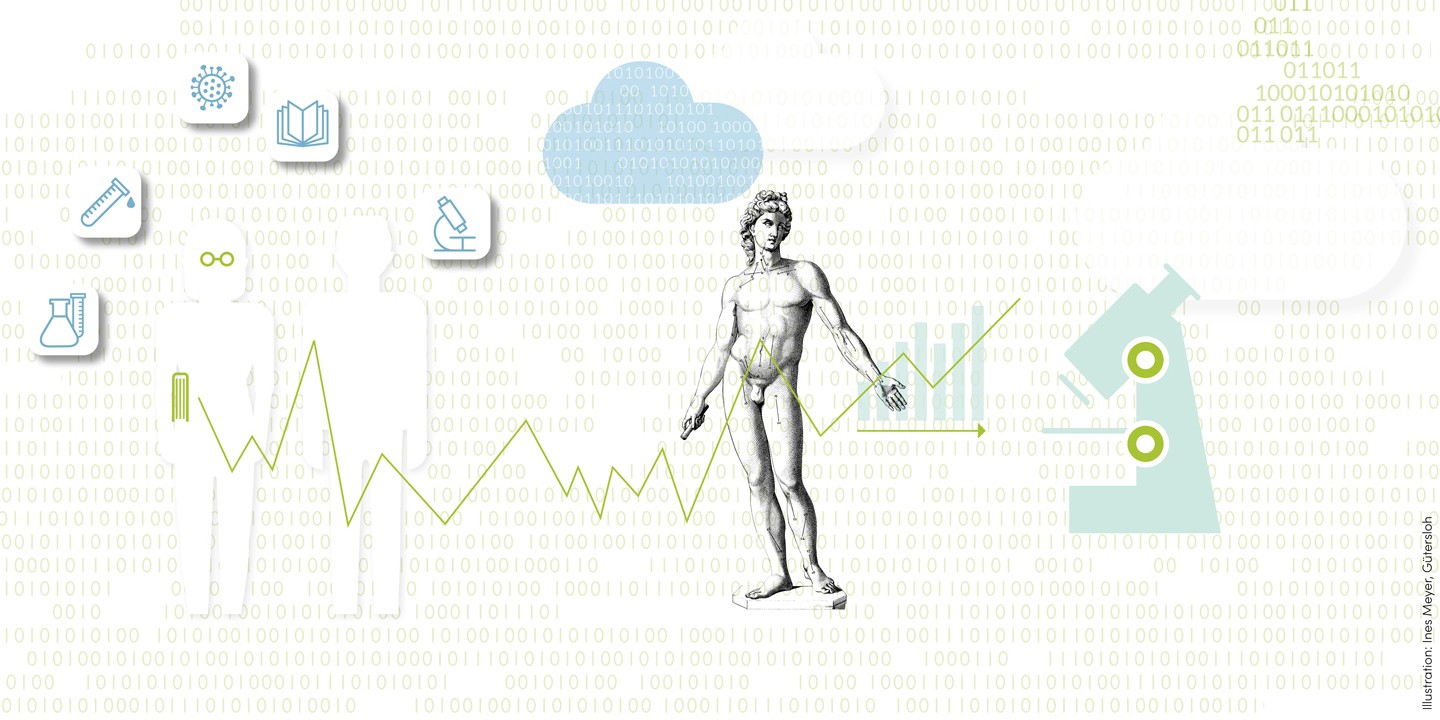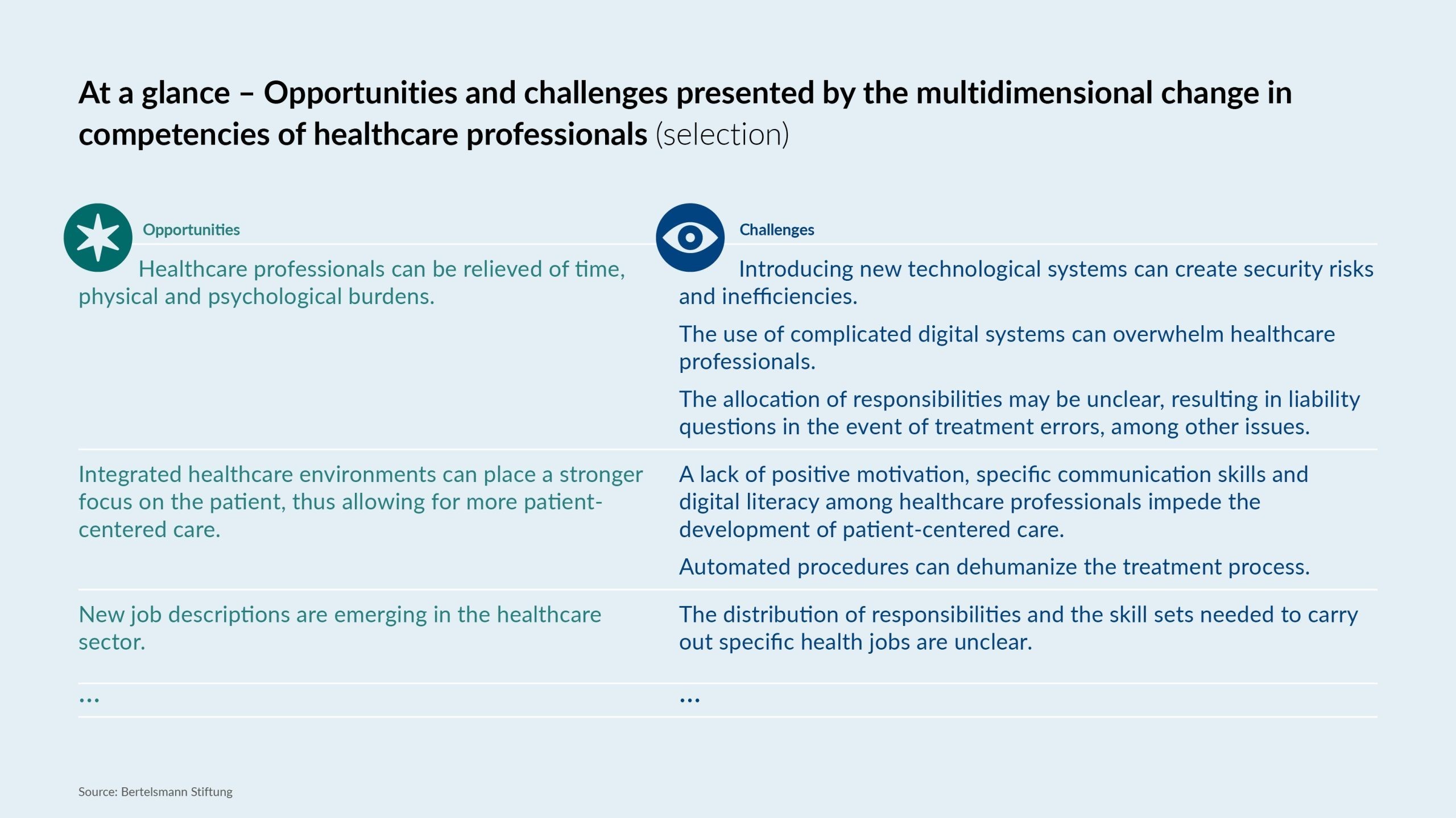Thanks to their vast resources, the tech giants have the capacity to collect and analyze massive amounts of data. This poses major ethical challenges to independent research as well as to the principles of justice and solidarity. But if we effectively address these challenges, big tech’s activities bear enormous potential in driving forward the development of an innovative learning health system. A team led by ethicist Prof. Christiane Woopen conducted a close analysis of the various perspectives involved and potential approaches to be pursued for the Foundation.
Tech giants have what it takes to be a disruptive force in healthcare – they have seemingly inexhaustible financial resources at their disposal, massive amounts of healthcare-related data and technical resources, as well as plenty of AI expertise. This puts them in the lead when it comes to researching and developing AI-driven solutions and learning algorithmic systems that can be used to analyze large datasets. Tencent, for example, is researching new digital biomarkers to detect and predict diseases with the Tencent Medical AI Lab. Apple provides its open-source software development kits (SDKs), HealthKit, ResearchKit and CareKit, to support the development of applications for the smartphone in sectors such as research.
With the help of innovations like these, medical knowledge can be gained with unparalleled speed and complexity. This presents tremendous opportunities for the healthcare sector as well:
- Healthcare data can be systematically analyzed on a large scale.
- Research on complex medical or health and epidemiological phenomena such as pandemics, widespread diseases and rare diseases can be improved which, in turn, improves the reliability of predictions.
- The benefits and risks of medical measures in prevention, diagnostics and therapy can be better assessed.
- Everyday healthcare can be increasingly integrated into health research, which facilitates the development of a continuous learning health system.
In order for this to become a reality, we need to create the incentive and obligation among the tech giants to share their mountains of data derived from, for example, the use of wearables, sensors and the like, with research institutions. We also need policymakers to implement a strategy aimed at developing a learning health system and institute governance mechanisms. Such measures should enable a cycle of learning in which data from everyday medical care is subject to scientific analysis and the findings are rapidly introduced into improved care.
Nonetheless, the shift toward a learning health system, in which tech giants play an important role, also comes with a host of challenges. These need to be addressed if we are to properly leverage the opportunities arising from the tech giants’ activities.
Key questions in this regard include: Who will have access to the tech giants’ mountains of data? How can the conditions of access be regulated without losing sight of ethically relevant principles and values such as justice and solidarity? How can we ensure the scientific quality of data collection and processing?
So far, the tech giants have yet to handle research data with full transparency. Often citing “corporate secrets”, private firms in particular regard and treat the data they collect as their property and thus frequently reject requests from those outside the company for the use of or insights into the data being fed into their algorithmic systems. At the same time, sharing healthcare data for research purposes poses risks to the privacy and security of personal health data.
These are just some of the challenges associated with the activities of tech giants in the research sector. According to the study, in order for public and private research facilities to cooperate and work with (not against) each other, and in order to foster the creation of a continuous learning healthcare system, we need a government strategy and clear regulations to guide all stakeholders involved. This is of crucial importance to the scientific community and the public. Regulations should aim to counteract the increasing growth of inaccessible data silos and thus the privatization and commercialization of knowledge production. They should also seek to make the sheer volume of valuable data available for purposes targeting the common good that are in line with the principles of independent research, rights of access and distributive justice.
Further details about the additional challenges ahead and our recommended actions for addressing them are found in our “Tech Giants in Healthcare” study.




